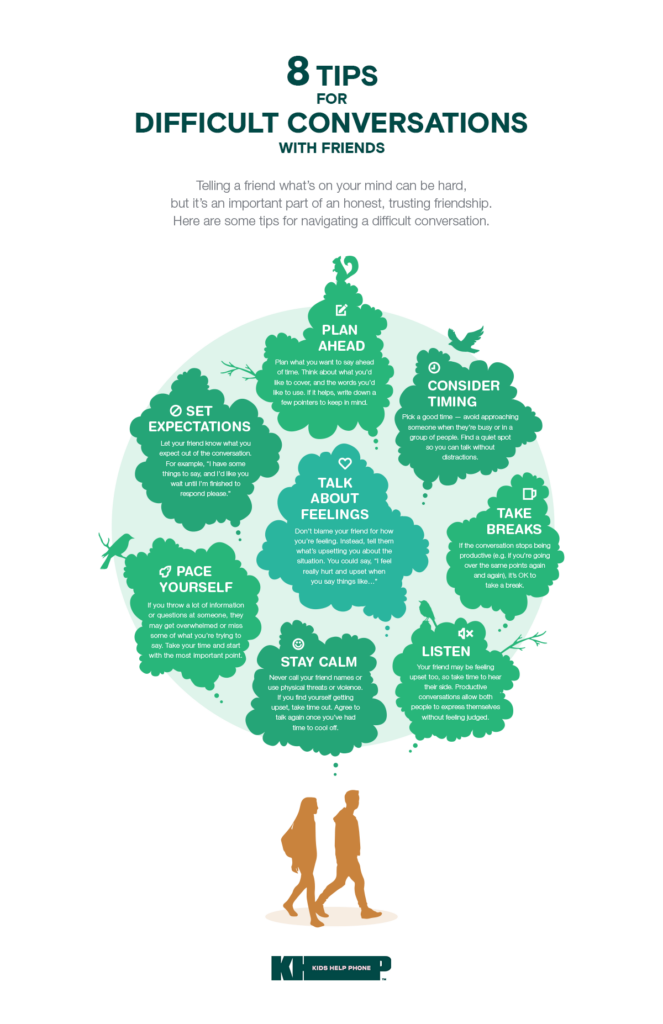Telling a friend what’s on your mind can be hard, but it’s an important part of an honest, trusting friendship. Here are some tips for navigating a difficult conversation.
Tap the image below to expand it.

1. Plan ahead
Plan what you want to say ahead of time. Think about what you’d like to cover, and the words you’d like to use. If it helps, write down a few pointers to keep in mind.
2. Consider timing
Pick a good time. Avoid approaching someone when they’re busy or in a group of people. Find a quiet spot so you can talk without distractions.
3. Take breaks
If the conversation stops being productive (e.g. if you’re going over the same points again and again), it’s OK to take a break.
4. Talk about feelings
Don’t blame your friend for how you’re feeling. Instead, tell them what’s upsetting you about the situation. You could say, “I feel really hurt and upset when you say things like…”
5. Set expectations
Let your friend know what you expect out of the conversation. For example, “I have some things to say, and I’d really appreciate it if you wait until I’m finished to respond.”
6. Pace yourself
If you throw a lot of information or questions at someone, they may get overwhelmed or miss some of what you’re trying to say. Take your time and start with the most important point.
7. Listen
Your friend may be feeling upset too, so take time to hear their side. Productive conversations allow both people to express themselves without feeling judged.
8. Stay calm
Never call your friend names or use physical threats or violence. If you find yourself getting upset, take time out. Agree to talk again once you’ve had time to cool off.


















